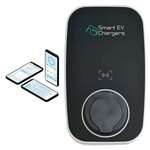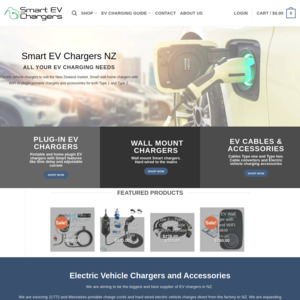Grab 10% off either socket or cable version of this charger. Features:
Features:
Scheduled charging – edit and add multiple schedules.
Dynamic load balance to monitor your house hold current.
Solar ready, adjust the charge current based on the solar input with the included second CT clamp.
32A 7.2KW Charging or vary the charge rate from the app.
RFID card control.
IP54 weather proof and can be mounted outdoors with no issues.
Input cable can be installed from the bottom or the back to hide the cable.
Led indicator ring light around the charge port
OCCP 1.6j Compatible
App compatible with Apple and Android
Built in DC protection
This charger is able to add around 50km of charge per hour to your car.
Solar Mode
With the included CT clamp installed on the output of your inverter the charger will automatically adjust its output to match what your solar is generating.
So if you are generating 20amps of solar this will be diverted to your car and will automatically adjust up and down so you wont export energy to the grid while the car is charging.
Dynamic Load balance
Install the included CT clamp at the mains and this will monitor your total house draw. If this draw exceeds the maximum limit the charge rate will be reduced to avoid tripping the breaker.
Great if you get free hour of power so you can run everything with out blowing a fuse


Price in title OP